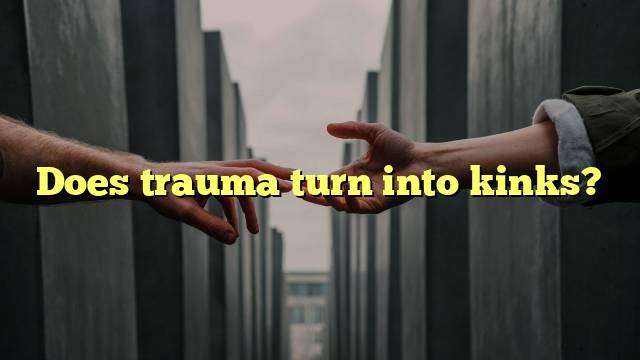Does Trauma Turn into Kinks?
Trauma can be a powerful force in a person’s life, shaping the way they view the world and their place in it. But does trauma actually lead to the development of kinks? This is a question that has been explored in some depth by psychotherapists and sex therapists, and the consensus is that trauma does not directly lead to the development of kinks. However, it can play a role in the way a person approaches and engages in BDSM activities.
What is Trauma?
Trauma is a reaction to an event or experience that overwhelms the person’s ability to cope. It can be caused by a single event or a series of events. Examples of traumatic events can include physical or sexual assault, natural disasters, war, or the death of a loved one. Trauma can also be caused by ongoing experiences, such as living in an abusive or neglectful home.
What is a Kink?
A kink is a form of sexual expression that goes beyond traditional norms. People who are into kink explore activities such as BDSM, role-playing, and fetishism. These activities can range from the mild to the extreme, depending on the interests of the individual.
Does Trauma Lead to Kinks?
The short answer is no. Trauma does not directly lead to the development of kinks. However, trauma can play a role in the way a person approaches and engages in BDSM activities.
How Does Trauma Impact Kink?
When a person has experienced trauma, they may approach BDSM activities with a heightened sense of vulnerability. They may experience fear and anxiety, which can lead to difficulty in trusting others. This can lead to difficulty in communicating and engaging in consensual BDSM activities.
Trauma can also impact a person’s ability to experience pleasure. People who have experienced trauma may find it difficult to allow themselves to experience pleasure, as it can bring up uncomfortable memories or emotions.
Can Kink Help with Trauma?
Kink can be used as a tool for healing from trauma. While the trauma itself doesn’t serve as a catalyst for developing a kink (which is a popular misconception), it can be alleviated through play. “For example, a sexual assault survivor might initially feel afraid, weak, and powerless during their actual sexual assault,” Hughes writes in Psychology Today. “During a BDSM scene, they might take on a powerful role, allowing them to reclaim some of the power and control that was taken away from them during their assault.”
In addition to helping with the emotional aspects of trauma, BDSM activities can also help people with physical symptoms related to trauma. BDSM activities can help people become more aware of their body, which can lead to a greater sense of bodily autonomy. Activities such as bondage can help people become more comfortable with touch, which can be beneficial for those who have experienced physical trauma.
Conclusion
Trauma does not directly lead to the development of kinks, but it can certainly play a role in the way a person approaches and engages in BDSM activities. For those who have experienced trauma, BDSM activities can be a powerful tool for healing, helping to reclaim power and control and to become more comfortable with touch. It is important to be aware of the potential risks associated with BDSM activities and to approach them with caution.



